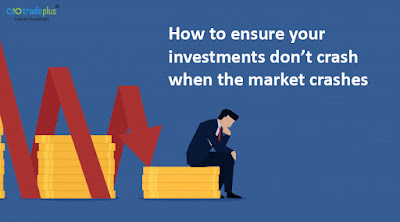Invest in market and sectors and not individual stocks!
 |
| Stock Broker in india |
The Sensex recently completed 40 years of existence. If you look back at its journey over the last 40 years, it has moved from a level of 100 in 1979 to 41,000 in 2019. That is a 410 bagger over 40 years. That roughly translates into annual returns of 16.5% on a compounded basis (CAGR). If you add up the average dividend yield of 1.5%, you are close to 18% annualized returns over 40 years. That is an amazing level of returns to earn on a passive index. But that is a counter-argument to it.
Over the same period, stocks like Reliance and Wipro have given annualized returns in the range of 34-36%, something which the index can never match. But therein lays the problem. These are just a handful of stocks that we are talking about. In a universe of over 5000 stocks, your chances of finding such incredible multi-baggers are as low as finding a needle in a haystack. So, as much as direct investing in stocks looks enticing, you must realize the limitations of that approach. That is where index investing comes in handy. While you can still look at individual stock investing, your predominant portfolio strategy must be tilted towards passive ETFs or exchange traded funds. Here is why!
Why ETFs could be the answer to most of your investment challenges
If the proof of the pudding lies in the eating, then the Sensex returns over 40 years is adequate proof of the efficacy of index investing and ETF investing. Here are some compelling reasons to opt for ETFs as part of your investment strategy.
- ETFs are extremely flexible. You have the choice of selecting the underlying index or benchmark based on your needs. So you have ETFs on diversified indices, ETFs on focused thematic indices, ETFs on sectoral indices, ETFs on bond variables, ETFs on precious commodities, ETFs on energy products etc. In short, ETFs allow you to take a simple and granular approach to asset classes. That is what makes them unique.
- Less due diligence is required of investors while opting for ETFs since these are based on indices that are created with a lot of thought and expertise. If you try to replicate a portfolio that looks like the Sensex, it would take weeks to do proper due diligence on each of those names. That is addressed by ETF investing. In ETF investing, the impact of a single stock is quite small, so investors can focus more on sector / economy macros.
- Costs are a major advantage and ETFs are actually substantially cheaper. Whether you compare these ETFs to equity diversified mutual funds or stocks, ETFs work out cheaper to own, administer and manage. Typically, index ETFs have lower annual expenses than comparable mutual funds. For example, an index ETF in India has a total expense ratio (TER) of around 0.35% compare to nearly 2.5% for an equity fund (regular plan).
- There are no entry barriers in ETFs since it is possible to buy as low as one unit of the ETF via the stock market. With ETFs, it is possible to put even small money to work immediately. Also, the low load structure in ETFs ensures that you actually get more value for your investment with less of cost related slippages.
- This is a merit that is often ignored while investing in ETFs. They provide instant diversification relative to individual stocks. As a stock investor, it can be quite challenging to have a diversified portfolio of individual stocks. The ETF is diversified by design and that addresses most of the immediate concerns that investors have on the risk front.
- ETFs actually give you access to complex markets. Foreign markets, gold etc are cases in point. ETFs come with the added advantage of no storage or security requirements. Similarly, investors can access a cross section of commodities like copper, precious metals, energy, base metals, agri products etc as a convenient package.
- Last, but not the least, ETFs can also enable la form of pair-trading. For example, in the Indian context, shorting ETFs is not possible. However, you can identify underperformers within an outperforming index. For example, Nifty may be outperforming but pharma stocks maybe underperforming. You can buy index ETFs and create a pair by selling futures on pharma stocks. That helps you create a relatively neutral position and also get the advantage of alpha.
The moral of the story is that there is tremendous merit in using ETFs as the gateway to equities. It is efficient, effective and also low-cost.
This Content Was Originally Published By http://blog.tradeplusonline.com/home/invest-in-market-and-sectors-and-not-individual-stocks/



If you're looking to lose weight then you certainly need to jump on this brand new tailor-made keto meal plan.
ReplyDeleteTo create this keto diet, licensed nutritionists, fitness trainers, and professional chefs have united to develop keto meal plans that are productive, decent, money-efficient, and enjoyable.
Since their grand opening in early 2019, hundreds of people have already transformed their figure and health with the benefits a good keto meal plan can give.
Speaking of benefits: in this link, you'll discover eight scientifically-tested ones provided by the keto meal plan.